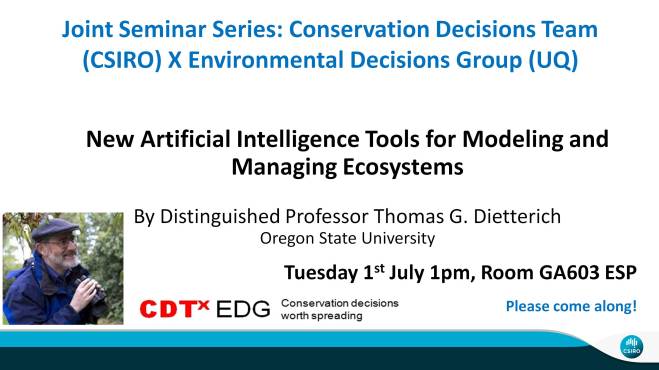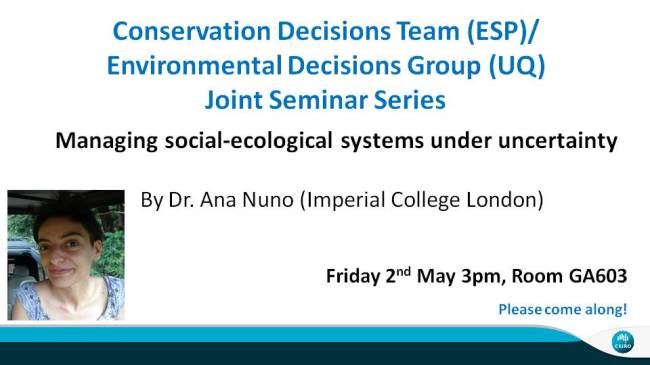CSIRO Cutting Edge Symposium: “Developing Australia’s edible insect industry to improve environmental, health and cultural outcomes”
When: 28-30th August 2019, EcoSciences precinct, Brisbane, Australia
The pitch:
Reducing farmed animal protein consumption by introducing edible insects into the Australian diet promises significant health, cultural and environmental benefits. The global insect industry is expected to grow 23% by, to $1 billion, by 20231, yet few Australian companies produce and sell insects2 (mostly non-native crickets and mealworms) for human consumption. This symposium will bring together leading scientific and traditional knowledge of native Australian edible insects, promote their inclusion in our diet, and drive commercialisation opportunities. We will produce a much needed roadmap for an Australian edible insect industry, providing innovative edible insect solutions.
Agenda:
The symposium will run over three days, and presentations will be followed up by group discussions. The symposium will be facilitated by the CSIRO ON team, with the support of a facilitation team (Rocio, Bryan and the CSIRO Conservation Decisions Team). We will include the following topics:
- Cultural (for example, entomophagy around the world, traditional uses by Indigenous Australians, cultural appropriation, empowering Indigenous people in the development of knowledge, enterprises and economies based on culture and natural resources, etc)
- Environmental (for example, reduction of environmental footprint of dietary changes, potential impacts to biodiversity, reduction of pesticide uses, biosecurity pros and cons, greenhouse gas emissions, etc)
- Health and diet (for example, nutrition, inclusion in the diet, prevention of illnesses, safety, etc)
- Commercialization (for example, current production, policy, regulation, ethics, current problems faces by the industry, what is happening in Europe/USA/Mexico, etc).
Participating enterprises will be able to set up a stand and promote/sell their products during the event. Please note that selling will only be permitted after 2:30 PM due to building restrictions.
We are looking for donations and sponsors!
Contact Rocio.PonceReyes-AT-csiro.au
Organising committee:
Rocio Ponce-Reyes (L&W), Bryan Lessard (CSIRO- NCMI), Emma Woodward (L&W-IF), Rene Cerritos (National Autonomous University of Mexico); Iadine Chades (L&W), Josie Carwardine (L&W), and Sam Nicol (L&W)
#CSIROediblebugs #ConservationDecisions #CSIRO #edibleinsects #innovation
1 http://www.fao.org/edible-insects/en/ “Global Edible Insects Market Will Reach USD 1,181.6 Million by 2023: Exclusive Market Research Report”
(Photo by Bryan Lessard, Grilo Spread)
















